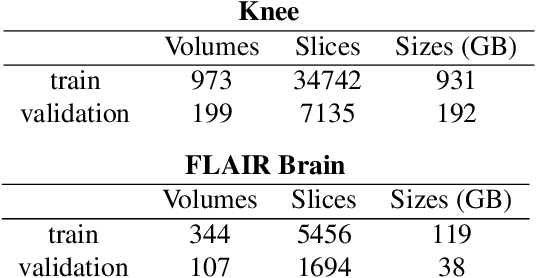Simple and Accurate Uncertainty Quantification from Bias-Variance Decomposition
Paper and Code
Feb 13, 2020



Accurate uncertainty quantification is crucial for many applications where decisions are in play. Examples include medical diagnosis and self-driving vehicles. We propose a new method that is based directly on the bias-variance decomposition, where the parameter uncertainty is given by the variance of an ensemble divided by the number of members in the ensemble, and the aleatoric uncertainty plus the squared bias is estimated by training a separate model that is regressed directly on the errors of the predictor. We demonstrate that this simple sequential procedure provides much more accurate uncertainty estimates than the current state-of-the-art on two MRI reconstruction tasks.
 Add to Chrome
Add to Chrome Add to Firefox
Add to Firefox Add to Edge
Add to Edge